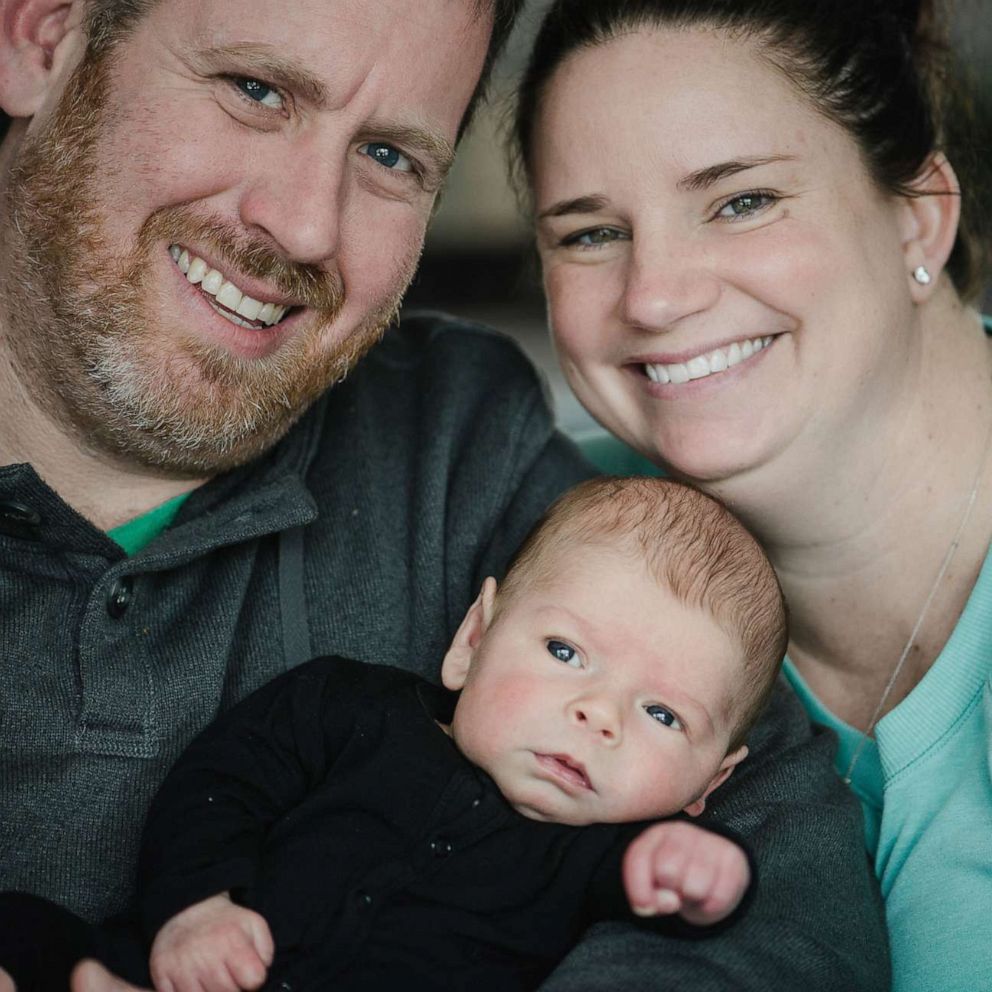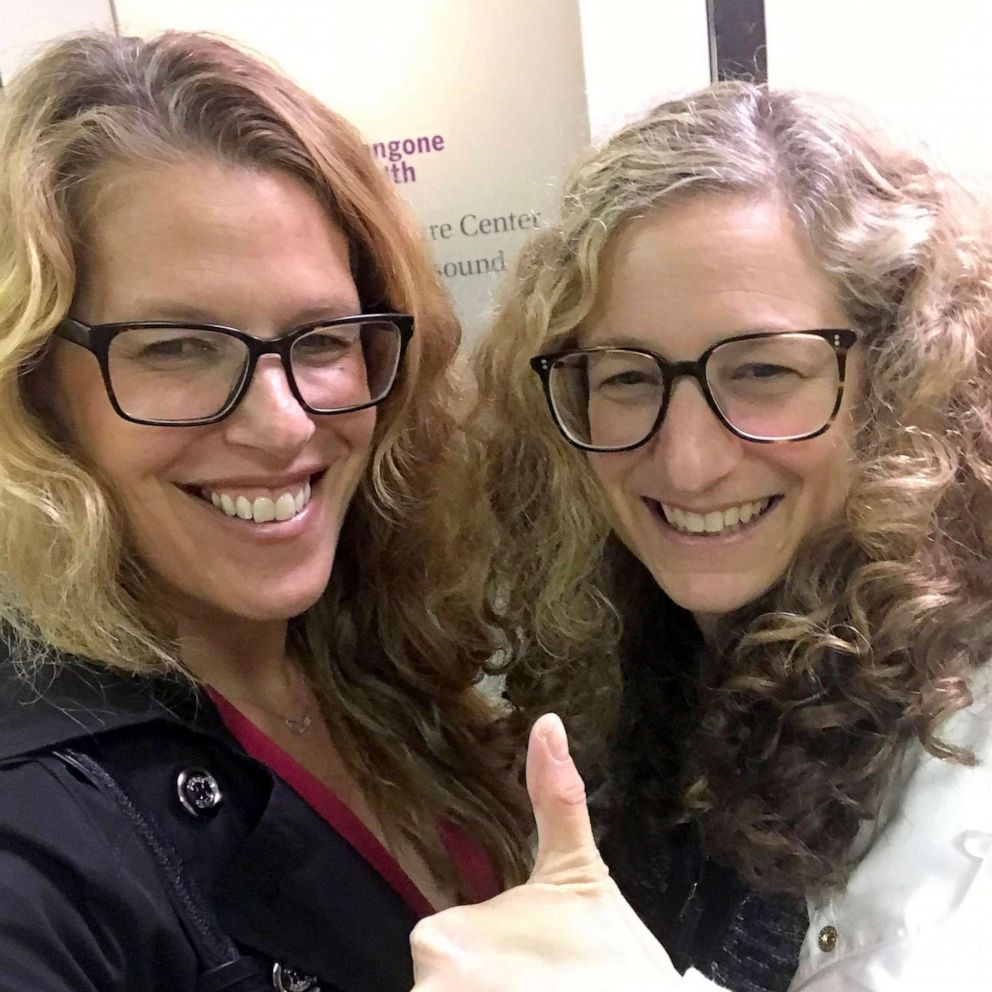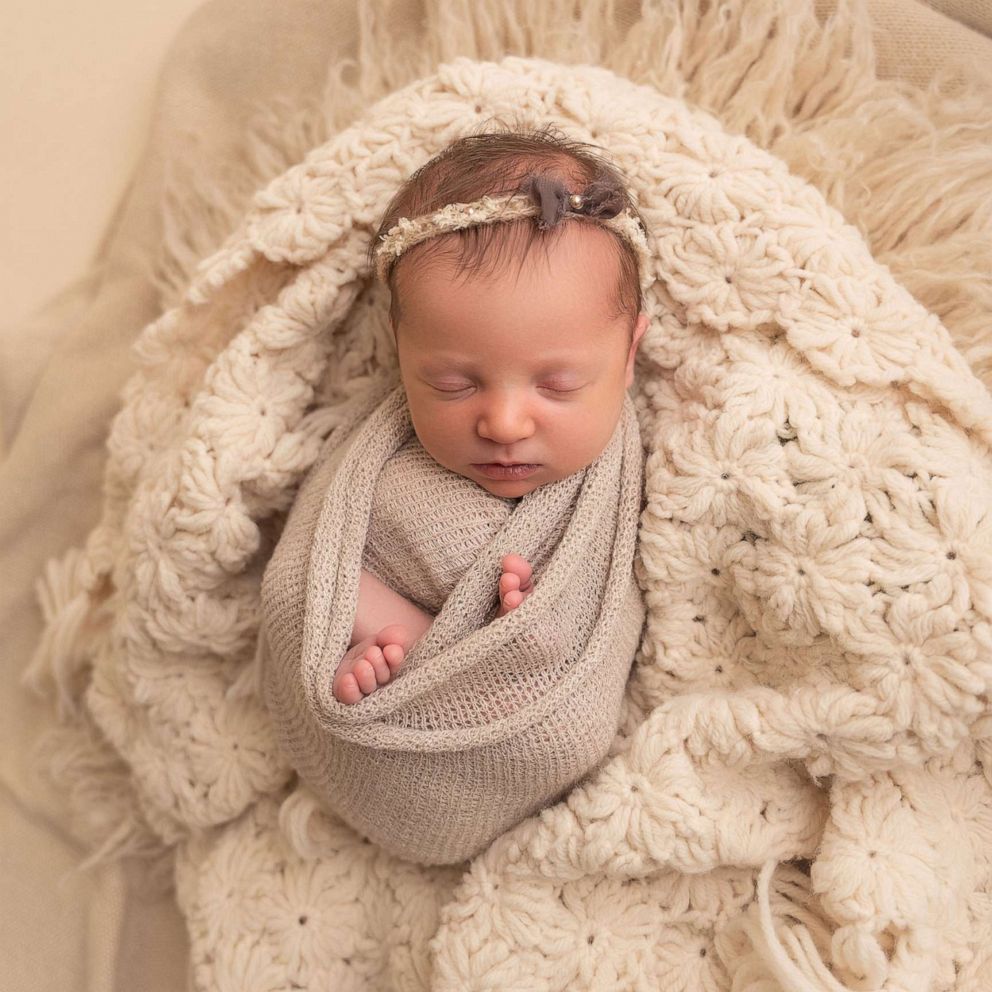Couple speaks out about embryo donation after fertility treatment
'I knew in my heart that discarding them was just not an option.'
Fertility treatments can be a very emotional process filled with complex decisions, including what to do with extra embryos.
It's a dilemma Ryann and Richard Hendrickson had to face. The married couple's effort to donate their extra embryos was first reported by The Philadelphia Inquirer.
The Hendricksons started their fertility journey after Ryann Hendrickson was diagnosed with breast cancer three years ago. They were already parents to a daughter and hoped to give her a sibling.
"We knew we wanted more children," Ryann Hendrickson told "Good Morning America."

The Pennsylvania couple said they started the embryo freezing process before Ryann started chemotherapy treatments and eventually used a surrogate to carry their son, who is now 18 months old.
Afterward, they continued to pay a monthly fee to have extra embryos properly stored.
"We weren't really ready to let them go right away," Ryann explained.

At first, the Hendricksons disagreed about what to do with their extra embryos.
"I wanted to help another woman who wanted a baby so badly because I knew what that felt like," Ryann Hendrickson recalled.
Rich Hendrickson, however, said he felt "unsure for a long time." Eventually, though, he came to a decision.
"What really alleviated my concerns was just knowing that there are couples out there that want another child so bad that they're willing to do whatever to get it," he said.
The Hendricksons went on to donate their embryos
A growing number of potential parents are turning to social media to find embryo donors, joining a growing number of people deciding to undergo embryo transfers. The number of embryo transfers have more than tripled in recent years, according to a 2022 study published in the American Journal of Obstetrics & Gynecology.
Before donating embryos, some fertility clinics require patients speak to a psychologist, to ensure they've considered the often complicated questions surrounding the decision.
"What does it mean to be a parent? What does genetics mean? I think for a lot of people who are leaning away from donating, they just cannot really feel comfortable with the idea that a genetically related child out there is growing up," Andrea Braverman, a clinical professor and psychologist in obstetrics and gynecology at Thomas Jefferson University, told "GMA."
With extra embryos, couples and potential donors have several options. These include discarding the embryos, donating them to scientific research, or donating them to other potential parents.
"For me, I knew in my heart that discarding them was just not an option," Ryann Hendrickson said. "I knew that they had another purpose and I just could not bear to destroy them."
An Instagram influencer who links embryo donors with intended parents helped the Hendricksons find an embryo recipient – another breast cancer survivor with whom Ryann Hendrickson had once chatted online.
"She texted me and we both went, 'Oh my gosh, this is a full-circle moment, connecting over cancer and now connecting over this," Ryann recounted, adding that she and the recipient are now friends and talk every week.
The Hendricksons decided to sign over legal ownership of their extra embryos to the recipient and their partner in July, giving them a chance to have their dream family.
"Those reservations are totally gone at this point," Rich Hendrickson said of his previous concerns. 'We will be strangers to these babies. They're not ours. They are our DNA. But once they're brought into this world, the recipients that we chose, they will be their parents."
The recipient couple told the Hendricksons they plan on trying to get pregnant in the upcoming months. Both couples also said they plan to tell their children about embryo donation when they are older.







